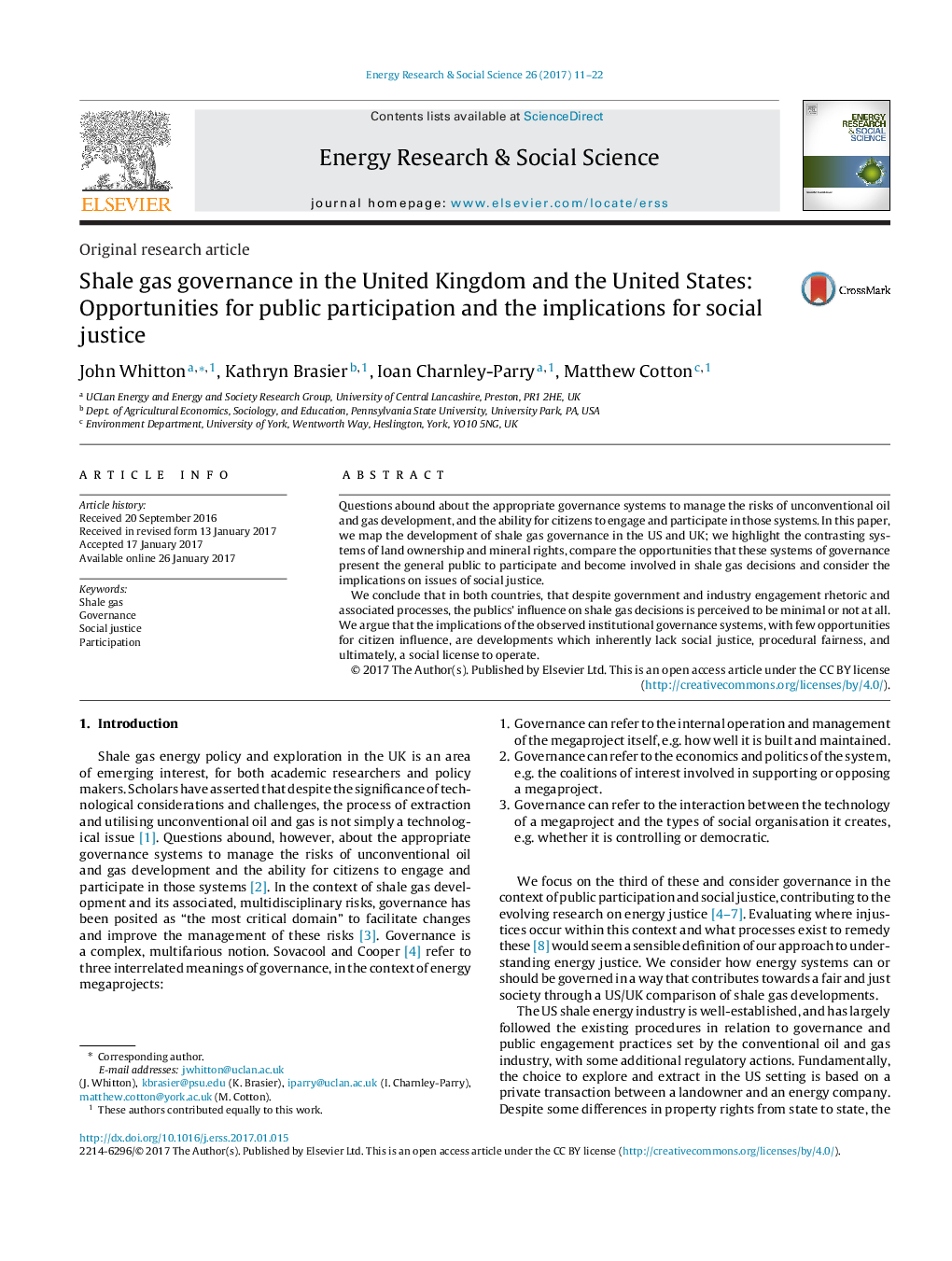| کد مقاله | کد نشریه | سال انتشار | مقاله انگلیسی | نسخه تمام متن |
|---|---|---|---|---|
| 6464069 | 1422575 | 2017 | 12 صفحه PDF | دانلود رایگان |
Questions abound about the appropriate governance systems to manage the risks of unconventional oil and gas development, and the ability for citizens to engage and participate in those systems. In this paper, we map the development of shale gas governance in the US and UK; we highlight the contrasting systems of land ownership and mineral rights, compare the opportunities that these systems of governance present the general public to participate and become involved in shale gas decisions and consider the implications on issues of social justice.We conclude that in both countries, that despite government and industry engagement rhetoric and associated processes, the publics' influence on shale gas decisions is perceived to be minimal or not at all. We argue that the implications of the observed institutional governance systems, with few opportunities for citizen influence, are developments which inherently lack social justice, procedural fairness, and ultimately, a social license to operate.
Journal: Energy Research & Social Science - Volume 26, April 2017, Pages 11-22
